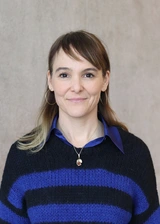The participating researchers will use case studies (Afghanistan and Somalia) to examine the production of knowledge in peace and security policy in Germany and East Africa on participation in interventions in internal wars with military or financial means. This is because the role of intervention-relevant knowledge in English foreign policy has not been researched so far. The project will be funded by the Federal Ministry of Education and Research (BMBF) for the next four years with a total of around 1.5 million euros (500,000 euros per location).
The aim of the research team is to identify the factors that influence peace or security policy knowledge production. In addition, the project aims to find out in what form knowledge from peace and conflict research is reflected in institutional security policy knowledge, how scientific and political knowledge production are interrelated and how they can be better brought together. The results will then be used to develop recommendations for action for academia, policy advisors and government institutions.
The project is a collaborative project, in which the Universities of Kiel and Bremen are involved in addition to the University of Erfurt. A professor and a post-doctoral candidate are working on the project at each location. In Erfurt, Professor Sophia Hoffmann and Dr Amelie Harbisch (International Politics and Conflict Research) are involved, in Kiel Professor Dirk Nabers and Dr Frank Stengel (Political Sociology) and in Bremen Professor Klaus Schlichte and Dr Jude Kagoro (International Relations).
"The knowledge transfer from the project is a particular concern for us," explains Sophia Hoffmann. She sees the special added value of the study in the high relevance of the expected results for the researched institutions themselves: "Both consultancy institutes and government institutions have an interest in finding out how their internal knowledge is created and how it relates to each other. Planned knowledge transfer activities therefore include the internal presentation of the project design and results at the institutions to be analysed – two major German think tanks for foreign policy, the German Federal Foreign Office and government institutions in Uganda – at the beginning and end of the project respectively, furthermore roundtable discussions at the colloquium of the Working Group on Peace and Conflict Research and finally the presentation and discussion of the project results at a public knowledge transfer event at the participating locations (Bremen, Kiel, Erfurt).
"For our case studies, we selected the foreign missions of the German armed forces in Afghanistan (OEF, ISAF) and Germany's indirect (because only financial) participation in the AMISOM mission in Somalia, in which Uganda provides the largest contingent of troops," explains Sophia Hoffmann. This selection is based on the principle of comparative case selection using a so-called "most different systems design" (MDSD). "The Federal Republic of Germany was involved in Afghanistan for several years with 'Bundeswehr' troops. English's participation in the International Security Assistance Force was the largest, most resource-intensive and highest-casualty deployment of German armed forces since 1945 and was controversial in public, political and academic circles, not least because of this. In contrast, the Federal Republic of Germany is not itself militarily involved in the AMISOM mission, but co-finances the deployment of troops from East African states. ISAF and AMISOM thus represent two ends of the intervention spectrum: intensive participation with high intensity in the case of Afghanistan versus 'delegated intervention' in the case of Somalia."
The results from the research project will flow into academic publications and into expert lectures. Sophia Hoffmann: "In addition, we will of course share our findings with the researched communities and also present them to the general public in various knowledge transfer formats."
![[Translate to English:] ISAF in Afghanistan](/fileadmin/_processed_/5/a/csm_pixabay_ISAF_Truppen_2aaf17491e.webp)

